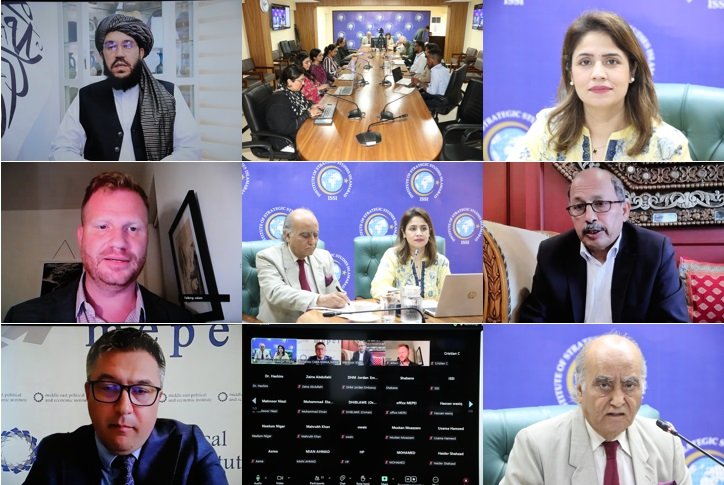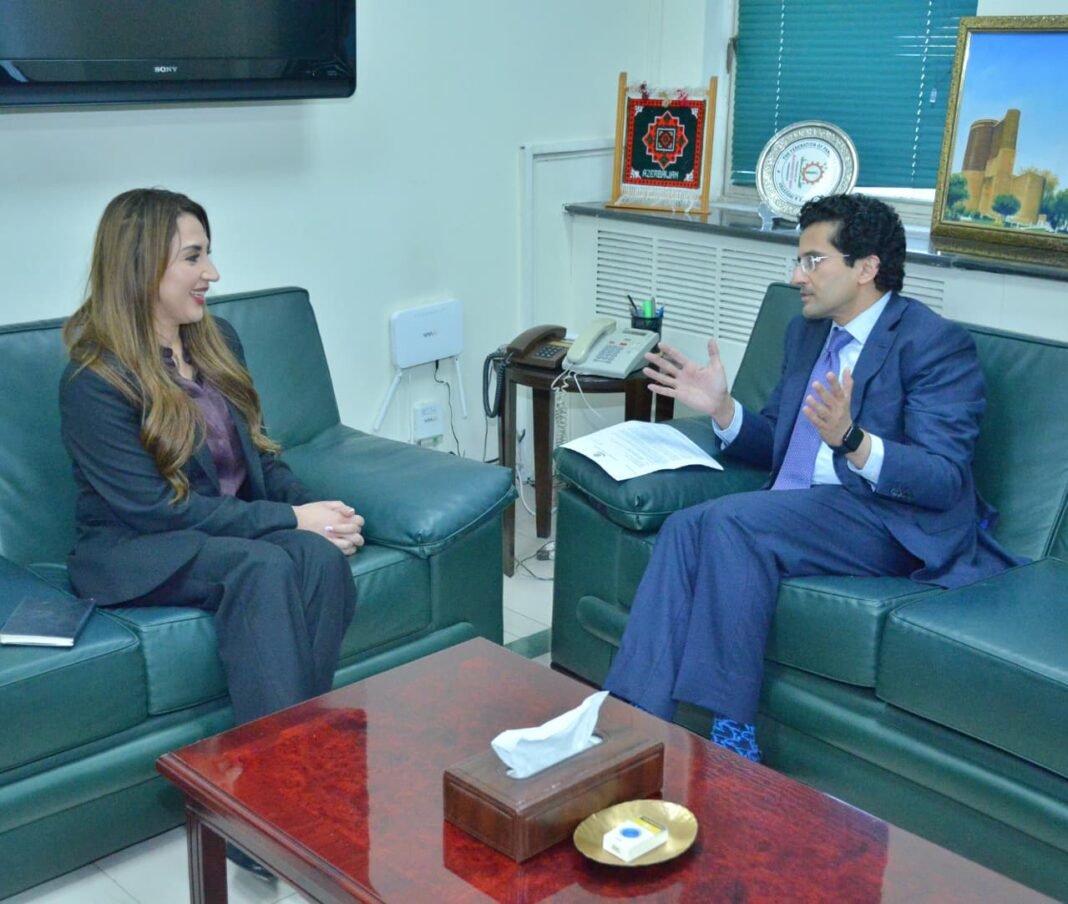
Four Years of the Islamic Emirate of Afghanistan: Governance, Domestic Trajectories, and International Engagement
Islamabad : The Centre for Afghanistan Middle East and Africa (CAMEA) at the Institute of Strategic Studies Islamabad (ISSI) hosted a webinar, titled “Four Years of the Islamic Emirate of Afghanistan: Governance, Domestic Trajectories, and International Engagement”. The webinar was moderated by Amina Khan, Director CAMEA. Speakers included Ambassador Khalid Mahmood, Chairman BoG, ISSI; Sardar Ahmad Shakeeb, Ambassador of Afghanistan to Pakistan; Ambassador Mansoor Ahmad Khan, Pakistan’s Former Ambassador to Afghanistan; Adam Weinstein, Deputy Director of the Middle East Program at the Quincy Institute for Responsible Statecraft, Washington D.C., and Flavius Caba Maria, President and Director of the Political Department, Middle East Political and Economic Institute (MEPEI), Romania.
Ambassador Khalid Mahmood, in his opening remarks said that four years after the Taliban’s return, Afghanistan has witnessed consolidation of rule and expanded external engagement, including symbolic recognition from Russia. He noted, however, that broader recognition remains withheld over concerns of human rights, inclusivity, and terrorism. Domestically, he observed that while the Taliban have maintained authority, the presence of groups like ISKP, Al-Qaida, and TTP remains troubling. On Pakistan-Afghanistan ties, he highlighted both challenges such as cross-border attacks and positive steps including ambassador-level appointments and revival of the Joint Coordination Committee. He concluded that despite difficulties, renewed diplomatic engagement shows a pragmatic recognition of the need for cooperation and regional connectivity.
Amina Khan, Director CAMEA at ISSI, said that August 15, marked four years since the Islamic Emirate of Afghanistan (IEA) assumed power as the de facto authority in Afghanistan. She noted that while the IEA has brought stability, curbed corruption, banned poppy cultivation, and expanded diplomatic outreach, these gains have been overshadowed by its failure to honor reform pledges under the Doha Agreement, particularly on human and women’s rights, inclusivity, and counter-terrorism. She concluded that the group’s performance remains transitional and marked by persistent shortcomings.
Ambassador Shakeeb said that Afghanistan stands at the threshold of a new chapter under the Islamic Emirate. He noted that over the past four years, nationwide security has been ensured, narcotics cultivation eradicated, and a justice system established across all provinces. He highlighted Afghanistan’s move toward economic self-reliance and major projects in agriculture, energy, and infrastructure, alongside social programs for orphans, widows, and persons with disabilities. On foreign relations, he emphasized Afghanistan’s balanced diplomacy, citing engagement with over 100 countries and Russia’s recognition as a milestone in its international integration.
Ambassador Mansoor Khan said that four years on, the Taliban have brought stability and consolidated control, yet sanctions, lack of recognition, and failure to ensure women’s rights, girls’ education, and counter-terrorism remain major concerns. He noted divisions between hardliners and moderates, stressing that Afghanistan faces a choice between reforms leading to integration or isolation if shortcomings persist. On Pakistan-Afghanistan ties, he emphasized that terrorism remains a hurdle to economic cooperation and that constitutional reforms reflecting the aspirations of the Afghan people are essential.
Adam Weinstein said that while the U.S. remains the largest donor, providing part of nearly $10 billion in aid since 2021, Afghanistan has become a low priority for Washington under the Trump administration. He noted that the Taliban and Afghan people have shown resilience to aid cuts, but stressed that the Taliban must meet the international community halfway by choosing reforms and regional integration over isolation. He described U.S. policy as ad hoc and impulsive, and added that the Doha process has become piecemeal and largely dead.
Dr. Flavius Caba-Maria said that four years after the Taliban’s return, Afghanistan remains largely isolated internationally despite expanded regional engagement and recognition from Russia. He noted that while security has improved and drug flows curbed, the humanitarian situation is dire and refugees continue to be returned. On the EU’s policy, he stated that although Europe remains focused on Ukraine, it continues coordination on aid and refugees without extending recognition. He added that some EU states are considering greater engagement, but the Union must adopt a more pragmatic approach aligned with realities on the ground.
In his concluding remarks, Ambassador Khalid Mahmood said that Afghanistan stands at an important juncture. He noted that while challenges remain, the Taliban’s regional and international engagement reflects recognition of the need for cooperation. He emphasized that inclusive policies and responsiveness to international concerns are essential for Afghanistan’s stability, development, and integration into the global community.
Sohail Majeed is a Special Correspondent at The Diplomatic Insight. He has twelve plus years of experience in journalism & reporting. He covers International Affairs, Diplomacy, UN, Sports, Climate Change, Economy, Technology, and Health.





![logo-1[1]](https://globalnewspakistan.com/wp-content/uploads/2025/01/logo-11-e1737618310315-300x187.png)